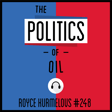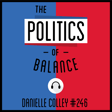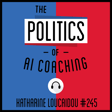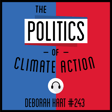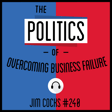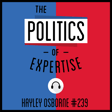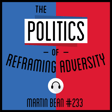
251: The Politics of Taxing Carbon - Ross Garnaut
For those who have followed the tortuous path of Australian climate policy over recent decades, a 2024 report by the Australian Energy Market Commission of a “shadow price” of A$70 a tonne of carbon dioxide equivalent elicits some painful memories. Meet Ross Garnaut who if you are an economics tragic like me, will be a household name. In brief, Ross is a professorial research fellow in economics at the University of Melbourne. In 2008, he produced the Garnaut Climate Change Review for the Australian government. He is the author of many books, including the bestselling Dog Days, Superpower and Reset. Drawing on his unrivalled expertise in economics, industrial development and climate change, Garnaut makes the case for a levy on the big polluters that will help fund Australia to become a carbon-free energy giant, lower the cost of living and assist the world to cut emissions. His latest book ‘Let’s Tax Carbon – and other ideas for a better Australia’ Garnaut examines Australia’s economic history, breaking down which policies have worked and which haven’t. He critiques the Albanese government’s first term and presents a set of policies that, he argues, can deliver full employment with rising incomes for a growing Australian populations. As well as analysing Australian monetary and fiscal policy, Let’s Tax Carbonalso looks overseas to the consequences of Trump and Biden’s economic policies and how countries including China, Japan and the United States are responding to climate change.
He discusses in this show:
1. Taxing carbon is one of those areas of Australian politics that has stymied or worse still. toppled former Prime Ministers and other leaders for 15 years or so, and seems to be publicly avoided as a policy idea by those in power ever since. Explain why your new book is hinged on this being a great idea for a zero-carbon economy to become a reality?
2. How can Australia lead the way in keys areas like the energy transition, as by global standards we maybe considered an economic ‘mid weight’ vs a powerhouse like the US or China?
3. The shadow carbon price described in the March 2024 Australian Energy Market Commission is not a cost to be paid by carbon emitters. It’s an estimate of the marginal cost of meeting Australia’s emission cut target. The $70/tonne figure will be included when calculating the benefits and costs of rule changes. Is that approach the right one? Explain your view and why.
4. With the reality of a second Trump presidency is now confirmed, there concerns his mantra “drill baby drill” means that the focus on “old school energy” from oil and coal remain firmly on his economics agenda
5. Takeaway: What is your final message on The Politics of Taxing Carbon?
Connect further:


